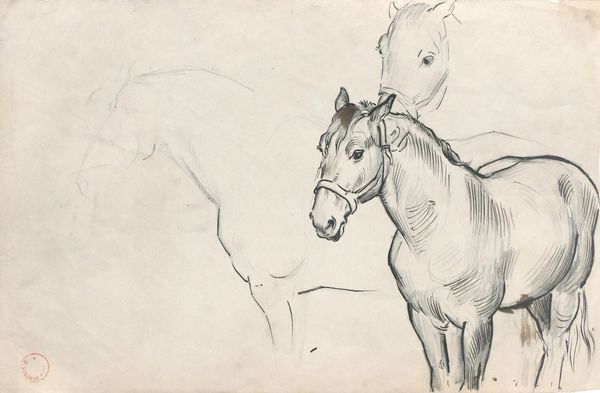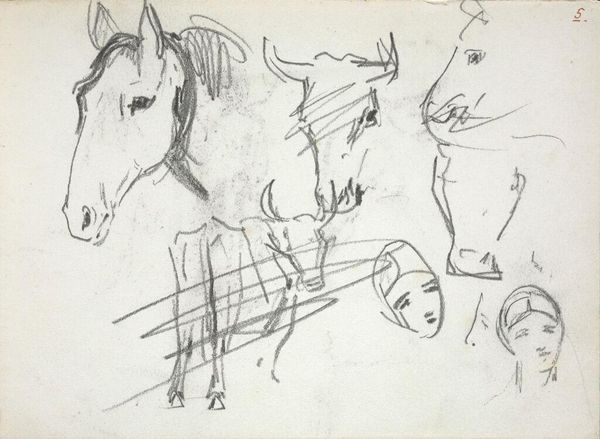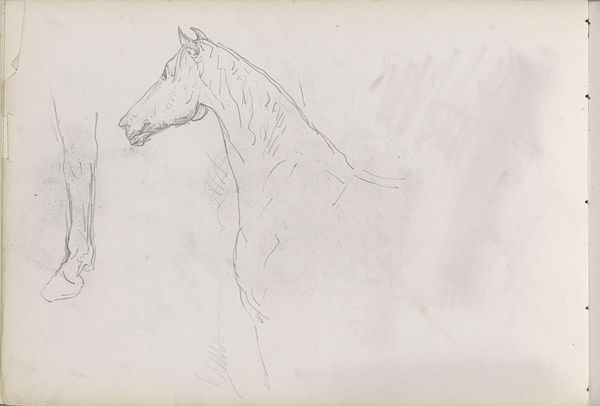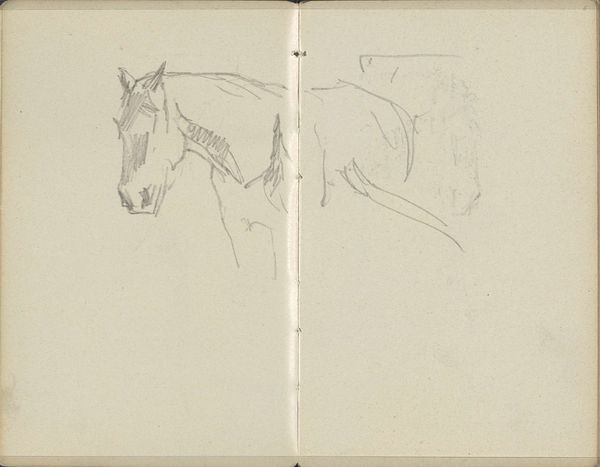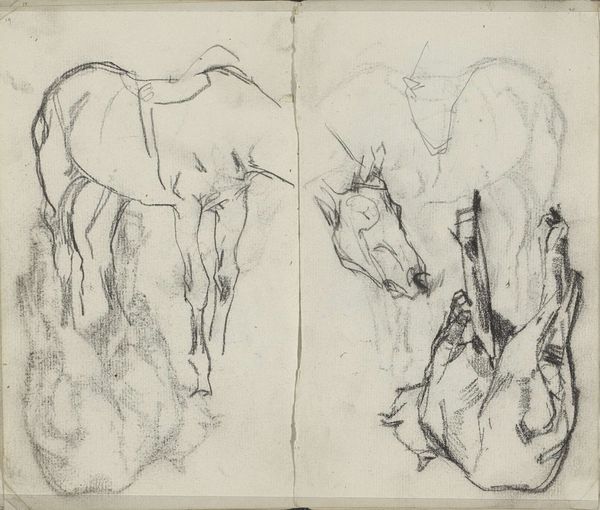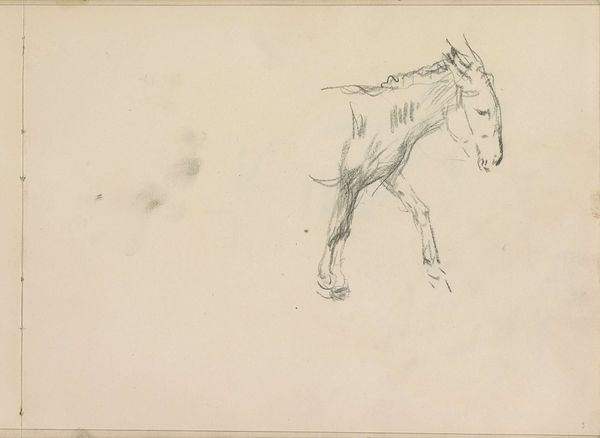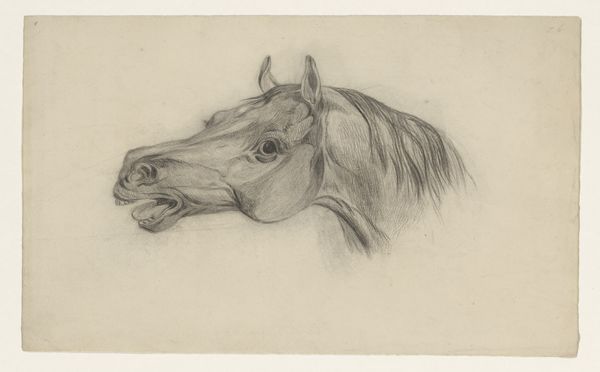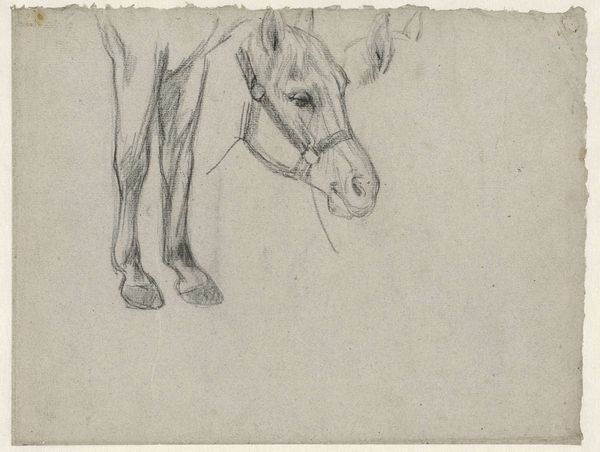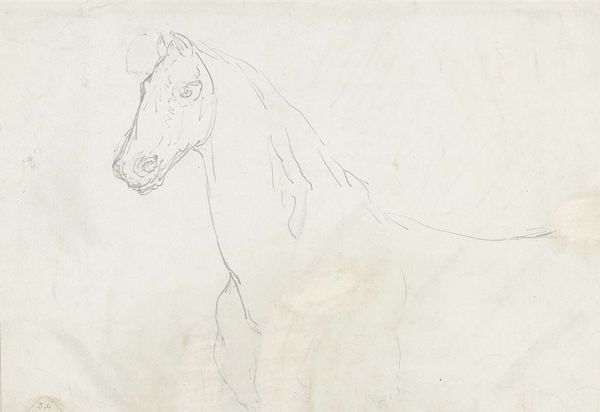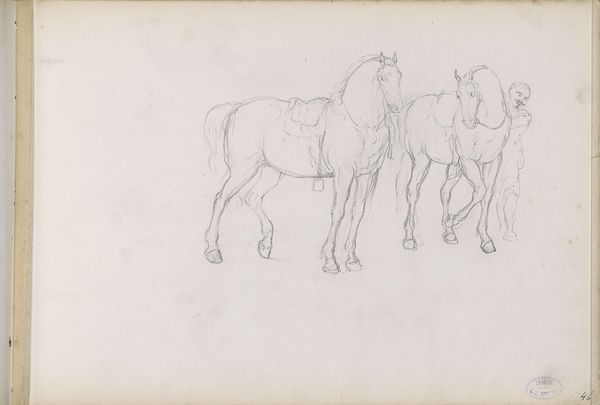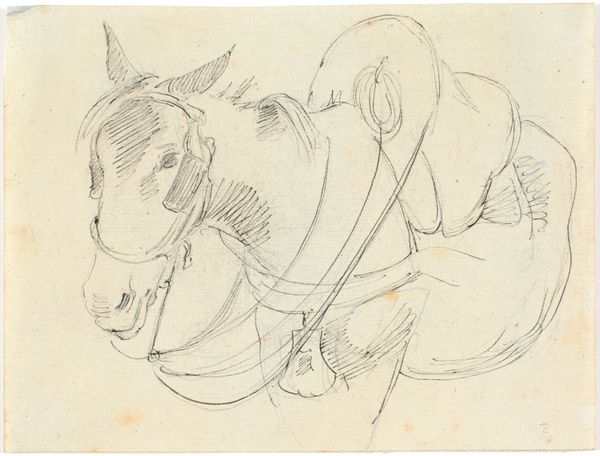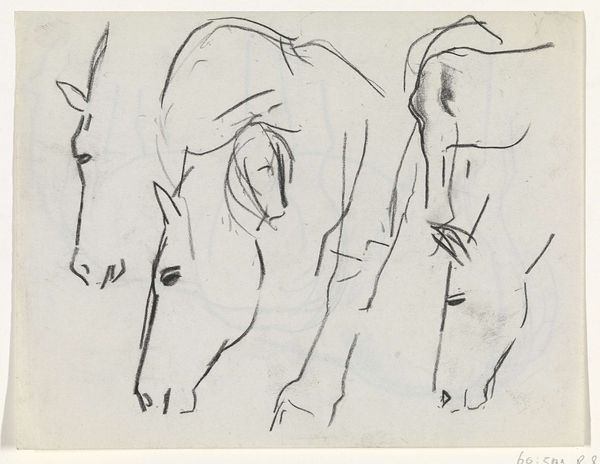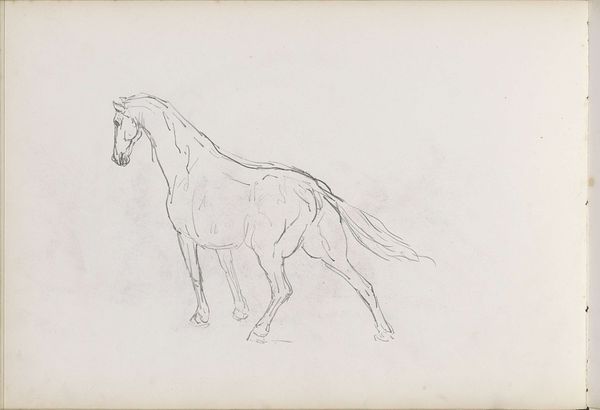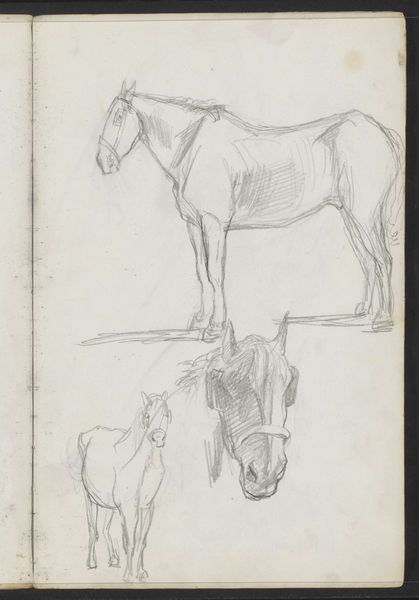
drawing, pencil
#
drawing
#
pencil sketch
#
landscape
#
pencil
#
horse
#
realism
Dimensions: height 213 mm, width 307 mm
Copyright: Rijks Museum: Open Domain
Editor: George Hendrik Breitner’s "Drie paardenhoofden," created in 1872, is a striking pencil drawing. I'm particularly drawn to the artist's delicate rendering of the horse's features, even in what appears to be a sketch. What can you tell me about this work? Curator: It's fascinating to consider Breitner's approach. The visible pencil strokes, the paper itself, these are not just neutral supports, but active components. Look at how the varying pressure on the pencil creates depth. It demonstrates the labor involved in the process and his deliberate manipulation of humble materials to create the illusion of form. The repeated study of the same subject-- the horse head - indicates the importance of these animals as instruments of labor in 19th-century society. Do you think that resonates in his decision to focus on them? Editor: I suppose I hadn't considered it that way, but the sheer repetition does speak to a certain...laboriousness. It's not just an idealized image of a horse. Curator: Exactly. The artwork is not so much about the *idea* of the horse, or its symbolic value, but about its material existence within the social landscape. Breitner forces us to recognize the relationship between the means of artistic production—the pencil, the paper, his labor—and the wider context of horses as working animals within a society dependent on them. Does that reframe the piece for you? Editor: Definitely! It’s made me think about how even a simple drawing can reveal complex relationships between materials, labor, and the world around us. I really appreciate the insight! Curator: My pleasure. Reflecting on the tangible aspects and their societal connections adds layers of meaning to this seemingly straightforward sketch.
Comments
No comments
Be the first to comment and join the conversation on the ultimate creative platform.
